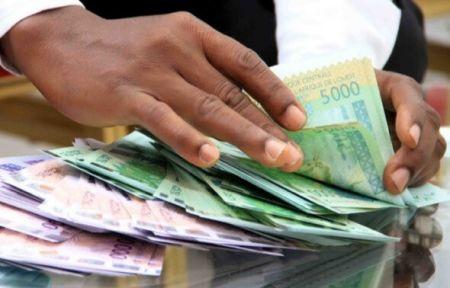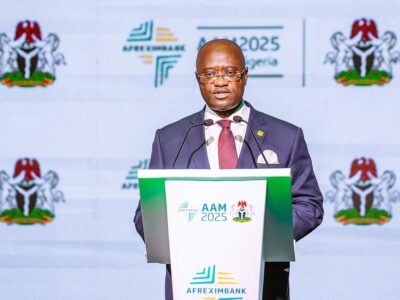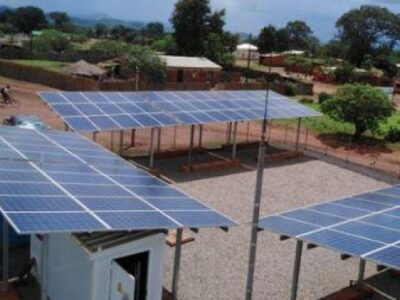
(Ecofin Agency) – Adopted at the end of 2024, the new WAEMU regulation strengthens currency controls and places the fight against money laundering and the financing of terrorism at the heart of the region’s economic and security priorities.
On December 20, 2024, WAEMU’s Council of Ministers passed a new rule to control the Union’s foreign financial relations. This new rule replaces the one from 2010 and introduces stricter measures to track currencies, close loopholes, and protect foreign exchange reserves. The Central Bank BCEAO says the new regulation is a response to practices that have been damaging the region’s financial stability for years.
Indeed, over $25 billion is made annually from exports like cocoa, cotton, and gold, but some of this money disappears from the BCEAO’s view. This money, which is important to help keep the CFA franc stable, does not always end up in the Union’s reserves.
Between 2022 and 2023, the Central Bank noticed a shortfall of about CFA5,446 billion (around $8.8 billion) in foreign currencies. This money, which should have been sent back to the Central Bank by businesses and local banks from exports outside the WAEMU countries, never made it to the reserves.
This gap is about 40% of the Central Bank’s foreign exchange reserves, which is worrying for a region that depends heavily on shared reserves to keep its money stable. In 2023, about 14% of the export revenue that should have been repatriated, or CFA2,260 billion, was missing. This is a common issue. In 2022, the shortfall was CFA3,186 billion, or 19% of export revenue from outside the WAEMU area.
“Exporters often find ways to keep their earnings in foreign accounts instead of sending them back,” said a banker, who requested anonymity. This practice is not new, but it has grown as global trade has increased. In 2023, only 74% of the export revenue from outside the Union was returned to the Central Bank.
To counter this, the new 2024 regulation sets strict rules: export earnings must be fully repatriated in two stages. First, they must be collected by an authorized intermediary (such as a local bank), then transferred to the BCEAO. Those who do not comply face sanctions outlined by the national laws of each WAEMU member state. These sanctions can include hefty fines and other administrative penalties. The goal is to ensure that repatriation commitments are followed. Authorized institutions, which also have strict obligations, risk losing their licenses for serious violations.
Another key measure is increased monitoring of foreign currency accounts held abroad. Until now, businesses and individuals could open accounts outside the WAEMU area with some level of opacity to manage their international activities. While these practices were often legal, they allowed important foreign currencies to remain outside the region. The new regulation now requires prior approval from the Ministry of Finance, after validation by the BCEAO. Every transaction must be justified and traceable.
“It is not about blocking business activities, but about better controlling the flows,” argues an economist based in Lomé. Some business operators may find this change insufficient, as these restrictions could lengthen processing times and add to bureaucracy.
Foreign investments are also affected. In 2023, Foreign Direct Investment (FDI) in WAEMU reached nearly $6.6 billion, showing the region’s continued attractiveness despite a challenging global economic environment. While the entry of FDI into the eight member countries remains unrestricted, the new regulation introduces strict requirements to ensure that these funds benefit local economies.
Now, financial flows related to FDI must be deposited with an authorized local bank. Earnings from these investments—such as dividends, interest, or liquidation proceeds—must be declared and go through an authorized intermediary. These funds must also be repatriated and transferred to the BCEAO to strengthen the region’s foreign exchange reserves.
For WAEMU residents wishing to invest abroad, the new rules impose even stricter constraints. Any operation—whether it’s purchasing shares, making loans, or providing guarantees—must be funded 75% by external resources. In other words, investors must source most of their funds from outside the region, which is expected to reduce pressure on local foreign currency reserves.
For example, an Ivorian entrepreneur who wants to finance a project in Europe for $10 million must raise $7.5 million from foreign banks or investors. The remaining 25% can come from local resources. If exceptions are needed, a specific request must be submitted to the relevant authorities for approval.
In simple terms, it will no longer be possible to use local currency reserves to build a factory in Europe or purchase a business in Asia. “This is a barrier for those lacking strong international partners, but it is a necessary evil to protect our reserves,” says a consultant based in Lomé.
Non-residents investing in WAEMU are not subject to the 75% rule but must still follow clear obligations. Any Foreign Direct Investment (FDI) or portfolio investment must be deposited with an authorized intermediary. The profits generated locally must be declared and transferred to the BCEAO through regulated channels.
Previously overlooked, derivatives are now included in the regulation. These financial tools, often used to protect against fluctuations in currency or commodity prices, must now be linked to a real operation. For instance, a company exporting cocoa could use a forward contract to lock in an exchange rate, but speculation on market changes will be prohibited. All derivative transactions must be tied to a specific business or financial operation.
For monetary authorities, this measure aims to protect local companies from massive losses due to speculative practices. However, for more experienced operators, it could limit innovative financial strategies. “It will all depend on BCEAO’s ability to enforce these rules without hindering economic activity,” said a trader based in Abidjan on LinkedIn.
International trading, which involves buying goods in one country to resell them elsewhere without local transit, is common in WAEMU. But until now, it lacked clear regulation. The new rules now require mandatory registration with an authorized intermediary, with supporting documentation. With this formalization, the central bank aims to reduce fraud while making it easier to collect data on commercial exchanges.
“Companies that operate properly have nothing to fear. However, for those hiding behind unclear arrangements, it will be a different story,” warns an industry expert.
The 2024 reform pays special attention to the fight against money laundering and the financing of terrorism (AML/CFT), improving on the framework introduced in 2010. While the 2010 regulation already mentioned the need to control financial flows to prevent illicit activities, it was vague on the specific responsibilities of actors and monitoring mechanisms. The 2024 update fills these gaps with stricter and more detailed measures.
The new enhanced controls now apply to all international transfers, especially those involving large or unusual amounts. Authorized intermediaries, including local banks, are no longer just observers. They are now responsible for thoroughly verifying financial flows, requiring detailed documentation, and reporting suspicious transactions, under the threat of heavy sanctions.
Compared to the 2010 rules, penalties for non-compliance have become much harsher. Offenders now face not only large fines but also the suspension of their licenses and possible legal action. These new provisions highlight the central role of BCEAO, which ensures regional coordination and the traceability of financial flows in collaboration with national authorities.
This reform, more ambitious and better equipped, positions WAEMU to comply with international standards. However, it primarily addresses a regional reality: the West African region, often criticized for questionable financial flows, now seeks to clean up its systems.
While the reform is praised for its ambition, many questions arise regarding its implementation. Small and medium-sized enterprises (SMEs), which make up 90% of businesses in the region, could be the first to suffer from administrative complexity. The requirements for registration, documentation, and additional time delays may discourage small exporters. “This reform is designed for large companies but is poorly suited to the realities on the ground,” said an entrepreneur based in Cotonou.
Local banks, on the other hand, will need to strengthen their capacities to handle more complex financial flows.











Comments